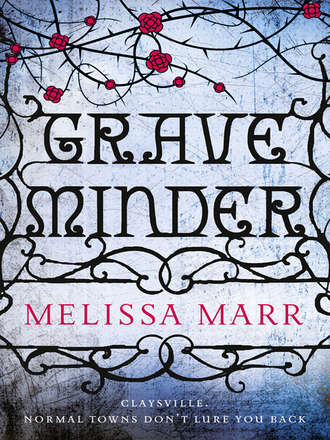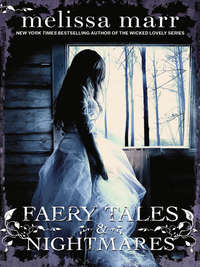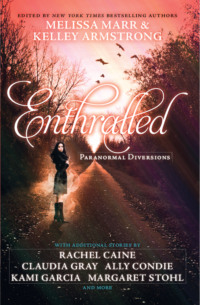
Полная версия
Graveminder
He slid a shelf forward and to the left.
“Damn,” he whispered. Floor to ceiling was stocked with whiskey and Scotch. Bottle upon bottle lined the shelf, all label forward, sorted by brand, five deep.
Maylene had never seemed drunk, didn’t smell like the bottle, but unless she was running some sort of speakeasy, there was no way any one person could need this much liquor. If she got drunk every night, it still would’ve taken years to drink this much. If it had always been so, it wasn’t any wonder now where Ella and Rebekkah had found their never-ending supply of liquor all those years ago.
Byron slid the next shelf over and saw the same sort of overstocked shelf, this one full of unmarked bottles of clear liquid. He took down a bottle and twisted the cap. There was no seal to break.
Moonshine?
He sniffed. It didn’t have any scent.
Not shine.
He dipped a finger in the neck of the bottle and touched his finger to his tongue.
“Water?”
The town’s water was tested regularly. There wasn’t a thing wrong with it. The grocers didn’t carry much in the way of bottled water, finding the idea of buying water foolish, and these bottles were clearly not from any store.
“I don’t get it.” Byron examined the bottle in his hand, turning it around, looking on the bottom and under the lid. The only identifying mark was a date written in black indelible marker on the bottom. Home-bottled water, a distillery worth of whiskeys, and enough food for years of living. Short of preparing for End of Days–style catastrophes, this didn’t make sense. Maylene wasn’t any more religious than the rest of Claysville, and she certainly hadn’t seemed like she was planning for any sort of Armageddon.
And stockpiling food and booze doesn’t explain why anyone would kill her.
Byron closed the pantry door, set the bottle of water down on the countertop, and walked upstairs. He didn’t know where to send a sample for testing, but it was something.
Except bad water doesn’t result in torn-up bodies.
Upstairs, everything looked perfectly in order. Even the beds were made. In the bathroom that Ella and Rebekkah once shared, someone had set out a hand towel, bath towel, washcloth, and one of those little seashell-shaped soaps. It looked homey.
The guest bedroom that was once Rebekkah’s room had a quilt folded at the foot of the bed, and Maylene’s bed had fresh linens on the night table as if whoever tidied up wasn’t sure if changing the linens was a good idea or not. Byron wasn’t sure either. His father had kept his mother’s things out for months, even going so far as to spray her perfume in the air every so often. The shadow of her presence had lingered long after she was gone.
For a moment he considered sitting down, but he couldn’t bring himself to do so. It was one thing to come into Rebekkah’s home to look for something, some clue, some anything to answer the questions he knew she’d have. It was another altogether to make himself at home.
He paused in the doorway, remembering the first time Rebekkah had dealt with the death of a loved one.
Rebekkah sat on the edge of her bed. Her face was wet with tears, and her sobs were the gulping-gasping kind. He’d seen grief before; sobbing people were normal in a funeral home. Those people weren’t Rebekkah, though; seeing her in pain was different.
Byron went over and pulled her into his arms.
“She’s gone,” Rebekkah said against his chest. “Dead, B. She’s dead.”
“I know.” He could see Maylene watching them from the hallway. She didn’t come in; instead, she nodded at him approvingly.
Rebekkah clutched his shirt in her hands, holding him to her, so he kept his arms around her until her cries faded to sniffles.
“Why?” She lifted her face and looked up at him. “Why is she dead?”
But he didn’t have any more answers than she did. Ella had been acting strange the past few days. Without warning, she’d broken up with him in the morning. They’d never fought, never argued, and until that week, he’d thought she was happy.
What happened?
He’d hardly thought about anything else since she’d told him she was done with him. She hadn’t been angry, just sad. He didn’t tell Rebekkah any of that, not yet. In the span of a few days, he’d gone from having a girlfriend and a good friend, to being afraid he’d lose both of them because he and Rebekkah had kissed, to holding Rebekkah as they both tried to make sense of Ella’s death.
Was it our fault?
“Don’t leave me. Promise.” Rebekkah pushed away from him, but kept her hand fisted in his shirt as she stared at him. “She left us, and now … She could’ve told us what was wrong. She could’ve told me anything. Why didn’t she tell me?”
“I don’t know, Bek.”
“Promise me, Byron.” Rebekkah wiped her cheeks angrily. “Promise you won’t keep secrets or leave or—”
“I promise.” He felt a guilty twinge at how right it felt to make that promise to Rebekkah. Her sister, his girlfriend, was dead. Byron shouldn’t think of Rebekkah as anything but a friend—except that he had been thinking of her like that long before Ella had died.
And Ella had known.
“I promise,” he repeated. “No secrets, no leaving you. Ever.”
It was Rebekkah who had left, not quite a year later. She’d left Claysville and left him.
“How do I tell her you were killed, Maylene?” he asked the empty room.
He opened the doors to the other rooms. The third bedroom, Ella’s old room, wasn’t made up. The bed sat in an anonymous room that was overfilled with clutter. Maylene hadn’t built a shrine to her dead granddaughter—nor had she done so with her dead son. The room that had been Jimmy’s was a storage room now. In it, there were more boxes and plenty of clutter, but no bed at all. Both Ella’s room and Jimmy’s room looked untouched by the murderer and by the townsfolk who’d cleaned the house.
Byron went downstairs and grabbed the bottle of water. He let himself out, checked that the door was locked behind him—and then stopped.
A teenage girl sat astride his bike, kicking her foot back and forth.
“Hey!”
She cocked her head. “Yeah?”
“Off my bike.” He leaped off the porch and crossed the lawn, but when he reached her, he hesitated. Grabbing hold of a girl—regardless of the reason—wasn’t something to do lightly.
She hopped up so her feet were tucked under her and then sprang backward, putting the bike between them. For a moment she stared at him. Her forehead furrowed in apparent confusion. “She’s dead. The woman that lives here.”
“Do you know her?” Byron tried to place the girl, but he’d been back in Claysville only a few months, and he didn’t recall seeing her anywhere. She didn’t look like anyone he knew either, so he couldn’t peg her as someone’s daughter or sister.
“They stopped bringing her milk.” The girl’s expression turned wistful as she stared past him to the porch. “Yesterday there was milk, and today there’s not. I’m hungry.”
“I see.” Byron took in her frayed jeans and dirty face. There weren’t any homeless shelters in Claysville. He wasn’t sure if there was even a foster-care system. Relatives took in those that needed taking in, and neighbors handed over whatever extra they had to the folks who lacked.
He opened his jacket and pulled out his phone. “Do you have a home? Relatives here in town? I can call someone to come for you.”
“No, I’m not going anywhere. Not now,” she whispered.
The skin at the back of Byron’s neck prickled, but when he lifted his gaze from his phone to look at her, she was already gone.
6
CHRISTOPHER HAD DRIVEN FROM MAYLENE’S HOUSE DIRECTLY TO RABBI Wolffe’s. The young rabbi was on the duty roster this week.
From what Christopher had read in books and seen on the television, he knew that Claysville was peculiar in the way they ran things. Their mayor was joined in his governance by a joint secular and spiritual town council; any resigning council members picked their own replacements—as did the mayor. Between the town proper and the outskirts there were fewer than four thousand living citizens, but under the leadership of Mayor Whittaker and the council, Claysville had next to no serious crime. Hardly anyone moved away, and those few who did always came back. It was a safe, predictable town, and to assure that it stayed that way, the town leaders had policies in place for anomalies. The sheriff had only to follow protocol.
“I hate this part.” Christopher cut off his engine, but he stayed in the car for an extra minute. The rabbi was relatively new to town, so he tended to forget that there were topics that most of the town couldn’t discuss. He, and the rest of the council, never got the headaches that everyone not on the councils got when forbidden subjects were broached.
The door to the well-kept Craftsman house opened, and the rabbi stepped out onto the wide front porch. He’d obviously been working: a pencil was tucked behind his ear, and his shirtsleeves were rolled back. For the rabbi, book work was as distracting as the carpentry projects he had started up in town: both sorts of activities required folding up his sleeves.
Christopher got out of the car and closed the door.
“Everything in order, Sheriff?” Rabbi Wolffe called. The question wasn’t said in any alarming way, but they both knew Christopher wouldn’t be stopping by if things were in order.
“I thought we might talk a minute, if you have the time.” Christopher made his way up the flagstone walk.
“Always.” The rabbi stepped aside and motioned Christopher into the house.
“I’d just as soon stay outside, Rabbi.” Christopher smiled. He liked the young rabbi, and he was glad the man had chosen to come to Claysville, but longer talks with him always made the headaches come.
“What can I do for you?”
“There are a few odd details about Mrs. Barrow’s passing.” Christopher kept his voice bland. “Not that I think the whole town needs to know, but I thought you might mention it to the council. Maybe one of you all could pay a visit to William.”
“Is there something in particular that we should tell him?”
Christopher lifted his shoulder in a small shrug. “Suspect he knows. He’s seen her body.”
Rabbi Wolffe nodded. “I’ll call the council to a meeting tonight, then. Do you know—”
“No. I don’t know a thing,” Christopher interrupted. “I don’t want to either.”
“Right.” The rabbi’s features were unreadable. “Thank you, Sheriff.”
Christopher shrugged again. “Just doing my job, Rabbi.”
Then he turned and got back in his car as quickly as he could. He didn’t run from fights or anything like that, but he didn’t want to know what he didn’t need to know. Anyone who paid attention understood that there were plenty of times that avoiding questions was the best way for things to work out.
7
AFTER TAKING CARE OF ERRANDS AND GOING FOR A LONG RIDE TO CLEAR his head, Byron settled in at Gallagher’s, his regular evening hideaway. Gallagher’s was the best sort of tavern: wooden floor and wooden bar, pool tables and dartboards, cold beer and good liquor. Here, he could believe he was in one of any number of neighborhood bars in any town or city, and usually he could relax—both during open hours and after the bar was closed.
Not tonight.
He did all right at first, but as the night stretched on, his nerves became increasingly jangled. He looked at the clock for the third time in as many minutes; he considered going to the airport. Hell, he’d started driving there earlier, only to pull over and turn around again. Twice. As much as he wanted to see Rebekkah, he wasn’t sure that being there was going to help, so he sat at the bar and told himself that being met by an undertaker—especially me—wasn’t liable to help her mood.
“Are you drinking or just taking up a stool, Byron?” Amity smiled to ease the bite in her words. She’d been a welcome diversion since he’d been home, never demanding, never asking for more than he could offer.
“Byron?” she prompted, her tone a little less sure this time.
“Drinking.” He tapped his empty glass.
After an assessing look, Amity took his glass and scooped ice into it. She was pretty, with plenty of attitude. Skeleton-hand barrettes held back pale blond hair; thick-rimmed red glasses framed dark eyes heavily made up in purples and grays. Her curves were accented by a tight black shirt decorated with a picture of a cartoon monster and the words GOT STAKES? on the front and GOT SILVER? on the back. She was four years younger than he was, so she wasn’t old enough to notice when he was in high school, but in the few months he’d been home, he’d definitely been noticing her. Amity was uncomplicated, and he was able to give her exactly what Rebekkah had asked for from him: no strings, no hang-ups, no future talk.
Maybe I’ve changed.
Amity darted a glance at him, but didn’t speak as she tipped the bottle over the glass, pouring a triple shot of Scotch.
He held out a credit card.
She set the glass on a new coaster in front of him with one hand and took his card with the other. “It’ll be okay.”
“What?”
She shrugged and turned to the cash register. “Things.”
“Things,” he repeated slowly.
She nodded but didn’t look up. “Yeah. Things will be okay. You have to believe that … it’s what we’re all doing since she died.”
Byron froze. Amity’s words emphasized how little they actually talked. He knew very little about her life, her interests, her. “Maylene?”
“Yeah.” She swiped his card and while it was printing slid the Scotch into the empty space on the shelf. “Maylene was good people.”
Byron paused, took a drink, and then asked, “Did she come in here? I didn’t see her around.”
“She came in, but not much.” Amity leaned on the counter for a moment and leveled her gaze on him. “I mostly know her through my sister. Maylene went to council meetings, and Bonnie Jean took a seat on the council last year. So …”
Byron looked at the clock again. Rebekkah’s flight should’ve landed.
“Hey.” A soft touch drew his attention: Amity covered his hand with hers. He glanced at it, and then his gaze flickered between her hand and her eyes.
“Things will be okay. You need to believe that,” Amity assured him.
“Why does it seem like you know something I don’t?”
“Most folks don’t get to leave like you did. Sometimes a person who stays around here knows things … different things than those who were able to go.” She squeezed his hand. “But I’m guessing you know things I don’t.”
Byron didn’t pull away, but he did pause. Amity usually kept the conversation light—if they even talked at all. He took a long drink to stall.
“Relax.” She laughed. “No strings, right? You think I’m changing the rules on you or something?”
He felt his tension drain away as she laughed.
“No,” he lied.
“So … after I close …” She let the offer hang in the air.
Most nights he stayed until closing only if he intended to accept that offer. Tonight he couldn’t. It was foolish to feel guilty, but he did. He couldn’t be with Amity when Rebekkah was in town. He also couldn’t say that to Amity. Instead he smiled and said, “Rain check?”
“Maybe.” Amity leaned over and kissed his cheek. “Go see her.”
He gripped his glass tightly, but tried to keep his expression neutral. “Who?”
Amity shook her head. “Rebekkah.”
“Rebek—”
“You’ll feel better if you make sure she’s home safe.” Amity slid the credit-card slip and a pen over to him.
“How did you—”
“People talk, Byron, especially about you two.” Amity’s expression was unchanged. “Just so you know, though, she doesn’t talk about you ever. When you were away and she visited, Maylene introduced us and we got to know each other, but she’s never once mentioned you.”
Byron stared at the credit-card slip for a moment. He wanted to ask if Amity still talked to Rebekkah, to ask if Rebekkah knew that he and Amity … Not that it matters. He shook his head. Rebekkah had made herself perfectly clear years ago, and they hadn’t spoken since that night. Byron signed the slip and shoved his copy of the receipt into his pocket.
He looked at Amity. “I didn’t know you knew each other.”
“You and I don’t exactly talk much, Byron.” She grinned.
“I’m s—”
“No, you’re not,” she said firmly. “I don’t want words, Byron, especially empty ones. I want the same things you usually offer. Don’t stop coming to see me just ’cause Rebekkah’s home.”
“Rebekkah and I … We’re not—”
“Come see me,” Amity interrupted. “But not tonight. I already told Bonnie Jean I might need a ride. Go on.”
Byron stepped up to the bar, reached out, and pulled her close. He dropped a quick kiss on her cheek.
“Your aim’s off.” Amity tapped her lips.
He leaned in and kissed her. “Better?”
She tilted her head and gave him a look that, most nights, would’ve meant that they didn’t make it to her place after they locked the door. “Closer. Definitely closer to better.”
“Next time, Ms. Blue.” He picked up his helmet.
He was at the door when she answered, “I hope so, Byron.”
8
REBEKKAH STOOD AT THE BAGGAGE CAROUSEL. THE AIRPORT WAS MOSTLY empty at this hour, shops closed and gates vacant. She wasn’t quite alert, despite several cups of the nastiness the airline passed off as coffee, but she was upright, awake, and moving. At this point, that was about as much of a victory as could be hoped for.
Cherub, unhappy to be in her kitty carrier, mewed plaintively.
“Just a little longer, baby,” Rebekkah promised. “I’ll let you out when we get …” The words dried up as she imagined going home and finding it empty. Tonight there would be no rose-scented embrace to make everything less bleak: Maylene was gone. The tears that Rebekkah had kept in check the past few hours slipped down her cheeks as she watched the baggage carousel. Maylene is gone. My home is gone. The few short years Rebekkah had lived with Maylene, and the next nine years of visiting her, had made Claysville home, but without Maylene, there was no reason to come back here.
Rebekkah leaned against the faded green wall and stared blindly while the rest of the passengers got their bags and left. Eventually hers was the only bag circling. The carousel stopped.
“Do you need help?”
Rebekkah looked up at a man in an airport uniform. She blinked.
“Is that your bag?” He pointed.
“It is.” She stood up. “Thank you. I’m fine.”
He stared at her, and she realized that her face was wet with tears. Hastily she wiped them away.
“Why don’t you let me—”
“Thank you, but I’m fine. Really.” She smiled to take the sting out of the words and walked over to heft her bag off the carousel.
Looking unconvinced, he walked away.
Rebekkah extended the handle of her bag, picked up Cherub, and headed toward the rental-car desk. One step at a time. A few minutes later, keys in hand, she turned away from the counter and almost dropped Cherub.
A man in a pair of jeans, boots, and a well-worn leather jacket stood in front of her. His hair was a little longer than usual, brushing his collar, but the familiar green eyes watching her warily hadn’t changed.
“Byron?”
The temptation to throw herself into his arms the way she once had was overwhelming, but he kept his distance.
“It’s been a while,” he started, and then paused. He raked his hand through his hair and gave her a tense smile before continuing, “I know we didn’t part on the best terms, but I thought I’d make sure you were settled in.”
She stared at him, her Byron, here. The past few years had given him more edges, shadows where his cheeks looked too sharp and his eyes too worried, but the gestures were unchanged—so was the wariness.
I earned that.
“I didn’t know you were back,” she said foolishly. Her hand tightened on Cherub’s carrier as they stood there in the sort of awkward silence she’d dreaded when she thought about seeing him again.
After a few moments, he held out a hand for her bag. “Let me get that.”
When he reached out, she jerked her hand away quickly so as to avoid touching him.
The tightening of his expression made clear that he noticed, but he took the bag and motioned for her to precede him.
They’d gone several silent steps when he said, “I’ve been here for a few months now.”
“I didn’t know. Maylene didn’t tell me.” She didn’t tell him that she hadn’t—wouldn’t have—asked Maylene either. Rebekkah had figured out that dealing with Byron was best done by pretending he didn’t exist, that he was as dead to her as Ella. Managing that feat was a lot harder with him walking beside her. Rather than look at him, she looked at the tag on the keys in her hand, staring at them even though she knew the make and model. “The last she’d mentioned you was … I don’t know when. I thought you lived in Nashville or somewhere down that way—not that I was checking up on you.”
“I know that.” He gave her a wry smile, and then took a deep breath and changed the conversation back to safer territory. “I’ve only been back a few months. Since late December.”
“Oh.” Lack of sleep and grief were apparently making her foolish because she admitted, “I was here at Christmas.”
“I thought you might be, so I didn’t come back until after Christmas.” He walked with her to the rental-car lot. “I didn’t figure either of us needed to deal with … any of it then, so I waited till I thought you’d be gone back to wherever you were.”
She wasn’t sure what to say. This is what I wanted, what I asked of him. Unfortunately, standing in the deserted lot, jet-lagged, grief-stricken, and lost, made her want to forget all of that. You’re the one who told him to stay out of your life, she lectured herself as if the words would keep her good sense intact.
But as they walked, his already whiskey-deep voice broke the silence: “I told myself I’d stay out of your way, and I will if you want, but I couldn’t … I needed to make sure you got in safely. I said I’d give you your distance, and I have. I will. I just want you to know I’m here if you need a friend the next few days.”
Rebekkah didn’t know how to reply. They had said words much like those to each other for almost a decade. Since when Ella was still alive. Rebekkah knew it was safer not to look at him, wiser not to let herself go there. She glanced at him and then quickly looked at the car in front of them. “It’s this one.”
“Pop the trunk.”
She did so, and he put the bag in while she put Cherub’s carrier in the backseat. Then she stood unsurely at the door.
He held out a hand, which she looked at blankly. When she didn’t move, he said, “You’ve been up all night. You’re exhausted and upset.” He uncurled her fingers and gently took the keys. “Let me drive you to the house. No strings, Bek.”
“Your car—”
“Bike. It’s a bike, not the same one I had before but … Anyhow, it’ll be fine here.” He walked around and opened the passenger door. “Let me do this. I can’t fix much of anything, but … It’s a good hour or more to town, and … well, I’m here already. Let me be a friend tonight. After that, if you want me gone, I’ll do my best to stay out of your sight.”
“Thanks for meeting me and for offering to—for being a friend,” she said, and then she got into the passenger seat before she did throw herself into his arms. He was the one person who had stood by her side during the two worst things in her life—Ella’s death and Jimmy’s—and now he was here, ready to help her get through a third one. Despite the times she’d stolen away in the middle of the night, the words she’d hurled at him, the calls and visits she’d ignored, he was still willing to help her keep it together.
There were a lot of things she ought to say, apologies, explanations, maybe even excuses, but she was silent as he opened the driver’s-side door and got into the car—and he didn’t push her. He never had.








